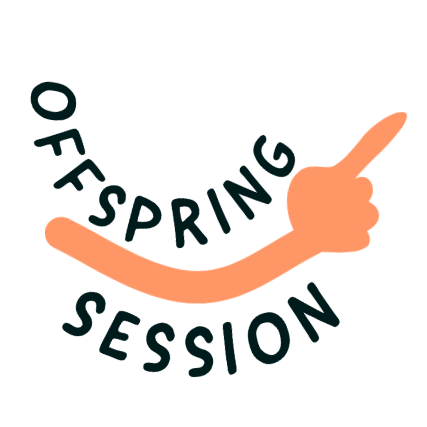Shedding Light on the Burden Faced by Caregivers of Craniopharyngioma Survivors
Thoughtful caregiver gazes out of a window, contemplating the challenges and unmet needs faced by noncancerous brain tumor survivors. Her dedication and resilience shine through as she provides essential care and support.
OCEAN CITY, Md., August 30, 2023 (Newswire.com) - The Raymond A. Wood Foundation (RAWF), dedicated to advancing research and support for craniopharyngioma survivors and their families, proudly announces the release of its inaugural research study, entitled "Caregiver Burden and its Relationship to Health-Related Quality of Life in Craniopharyngioma Survivors," published in the prestigious Journal of Clinical Endocrinology & Metabolism. This groundbreaking study was spearheaded by esteemed RAWF members, including Nathalie Kayadjanian, PhD (Scientific Advisor), Eugenie Hsu, PhD (Board Member and Caregiver), Amy Wood (Co-founder, Executive Director, and Caregiver), and Dean Carson, PhD (Board Member, Research Chair).
Craniopharyngioma (CP), a rare noncancerous brain tumor typically located in the hypothalamic-pituitary axis, presents complex and chronic medical conditions necessitating lifelong care and management. While the negative impact of CP on survivor quality of life is well-documented, its effects on caregivers have remained in the shadows. By unveiling the burden of disease borne by CP caregivers, this study not only sheds light on their challenges but also highlights the socio-economic toll on CP families and society as a whole.
As a research-driven patient advocacy organization, RAWF stands as a beacon of understanding and support for craniopharyngioma survivors and their caregivers. RAWF was founded and is predominantly powered by caregivers themselves who possess firsthand experiences unique to those immersed in the daily care of survivors. These caregiver insights reveal unmet needs often overlooked in clinical and research contexts. For instance, a comprehensive list of health issues affecting survivors post-treatment was compiled, extending beyond known medical literature.
Analysis of responses from 82 caregivers of CP survivors who participated in an online survey revealed that caregivers reported an average of 13 out of 29 health issues in survivors following tumor treatment. Hyperphagia—an excessive and insatiable hunger, poor satiety, food-seeking—emerged as a significant factor impacting survivor health-related quality of life and incurring significant caregiver burden. Caregiver burden, though moderate, surpassed levels seen in caregivers for conditions like Alzheimer's disease, dementia or chronic pain. Strikingly, caregiver burden was independent of factors such as caregiver education and income but strongly correlated with the number and type of health issues in survivors, especially those exhibiting symptoms of hypothalamic dysfunction. The study also unveiled the starkly poor health-related quality of life in survivors, with this factor playing a predictive role in caregiver burden. These findings underscore the multifaceted challenges faced by caregivers and survivors of craniopharyngioma, emphasizing the critical need for holistic support.
"I am thrilled to see the first study ever conducted by the Raymond A. Wood Foundation being published in the world's leading peer-reviewed journal for endocrine clinical research and clinical practice," stated Dr. Kadyadjanian, author of the report. "The findings of this study are important as they not only reveal the critical unmet need for support of caregivers of individuals with craniopharyngioma but also highlight critical determinants of caregiver burden, mainly the survivor's multiple health issues including hyperphagia and other hypothalamic dysfunction symptoms. This study is a great example of a patient and caregiver-driven research study that will guide future lines of research to improve the lives of those affected by craniopharyngioma."
In recognition of the prevalence and profound impact of hyperphagia on CP survivors and caregivers, RAWF is committed to advancing research in this critical area. Given the dearth of research on this topic, we are embarking on a rigorous study to comprehensively characterize and measure hyperphagia in this unique population. Additionally, recognizing the importance of capturing both patient and caregiver perspectives regarding the disease's impact, treatment, and unmet needs, we are developing a patient registry that will serve as a valuable resource, providing evidence-based data to inform and guide future research and clinical studies aimed at addressing the needs of patients and caregivers alike.
To read the full study, visit this link: https://academic.oup.com/jcem/advance-article/doi/10.1210/clinem/dgad488/7246360
About Raymond A. Wood Foundation (RAWF):
Incorporated in December 2016, RAWF is a 501(c)(3) nonprofit research-driven patient advocacy organization with a mission to advance research and provide education and support for hypothalamic-pituitary brain tumor survivors. Initially founded in honor of Alex Wood, a childhood craniopharyngioma brain tumor survivor, the foundation seeks solutions for survivors of these tumor types—both children and adults. RAWF is a grantee of the Chan Zuckerberg Initiative Rare As One Project. For more information, please visit rawoodfoundation.org.
Contact Information:Jamie Ping
Outreach & Communications Manager
[email protected]
800-354-5576
Original Source: Raymond A. Wood Foundation Reveals Caregiver Burden in Pioneering Craniopharyngioma Study


